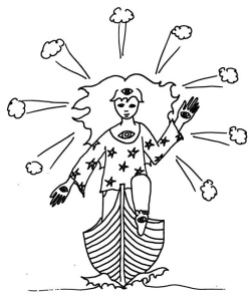
I used to hate that question. I’ve rarely had a simple answer. Physical Therapist worked for a decade. Mother. Retreat Leader. Board Member. None of those sounded normal and solid enough to be a “real” answer.
I could have said I was a novice spiritual revolutionary, but that never occurred to me in my younger years. Or activist-from-the-heart in training. Or spiritual seeker. Or visionary.
But I was milder then, trying hard to navigate being a nice, normal girl when I was so much more. Trying to understand the connections I saw all around me while navigating the explosive steam of compassion and justice that hissed around inside of me.
Since I turned 50, I’ve been trying to walk right into the middle of Marianne Williamson’s challenge,
“Our deepest fear is not that we are inadequate. Our deepest fear is that we are powerful beyond measure. It is our light, not our darkness that most frightens us. We ask ourselves, Who am I to be brilliant, gorgeous, talented, fabulous? Actually, who are you not to be? You are a child of God. Your playing small does not serve the world. There is nothing enlightened about shrinking so that other people won’t feel insecure around you. We are all meant to shine, as children do. We were born to make manifest the glory of God that is within us. It’s not just in some of us; it’s in everyone. And as we let our own light shine, we unconsciously give other people permission to do the same. As we are liberated from our own fear, our presence automatically liberates others.”*
Courage is not conquering fear. I am still afraid. But I walk forward anyway. Boldness today is needed to serve our world for today and tomorrow.
“What do I do?” you might ask.
I am a stretcher of the boundaries. A catalyst. An awakener. A fire starter. A revolutionary. Warrior from the heart. Pioneer. Leader. Minister. Priestess. A root healer. A social activist seeking to change consciousness. A connector.
And I am only one of many.
What do you do?
Remember, playing it small doesn’t serve any of us. Be bold, even when your knees shake or part of you cowers at your audacity.
Future generations are waiting to see how bold we are willing to be.
*Marianne Williamson, A Return To Love: Reflections on the Principles of A Course in Miracles, pages 190-191.






